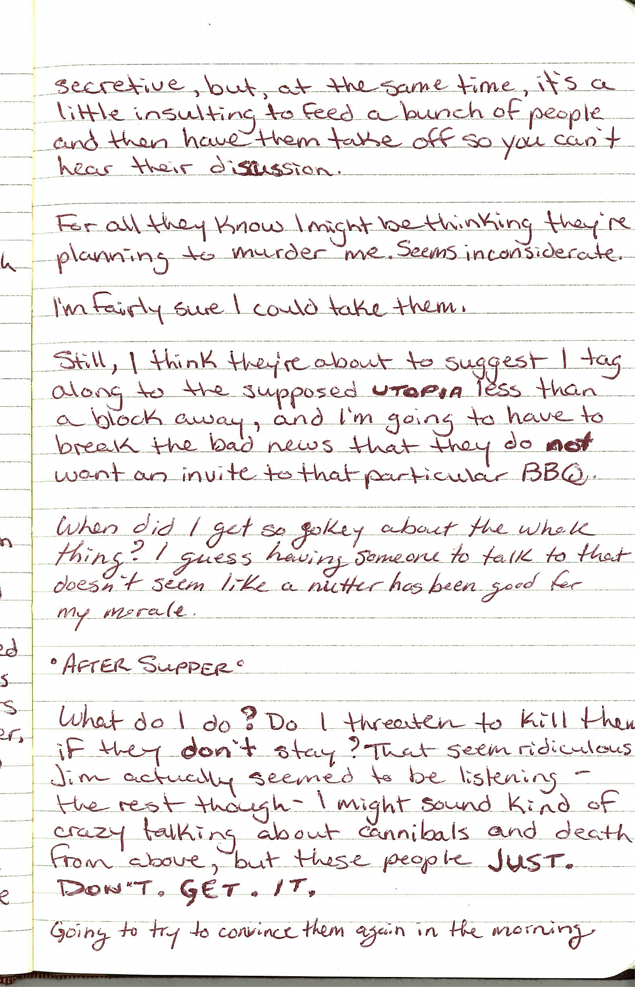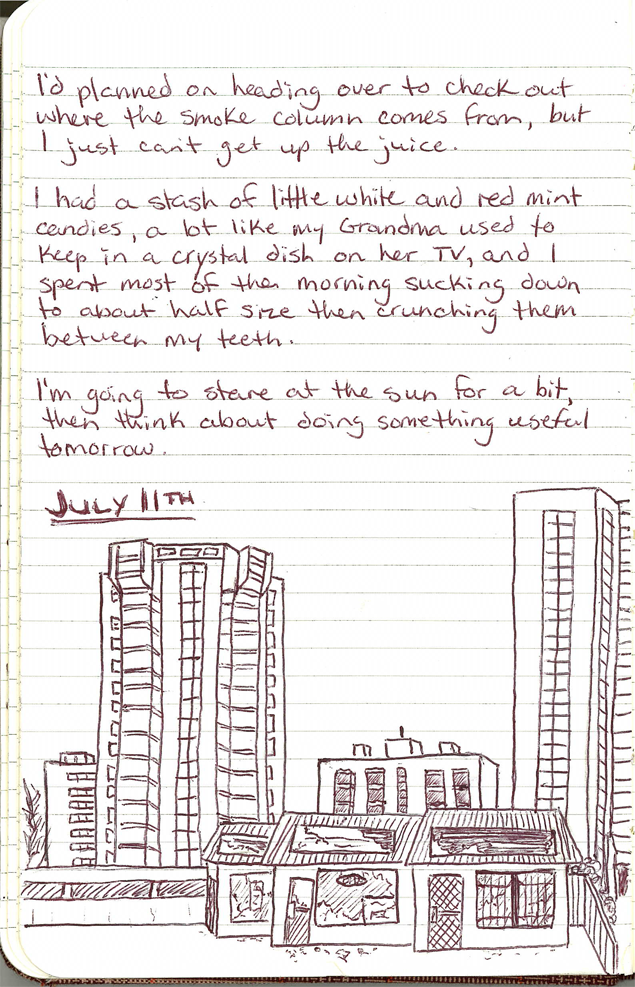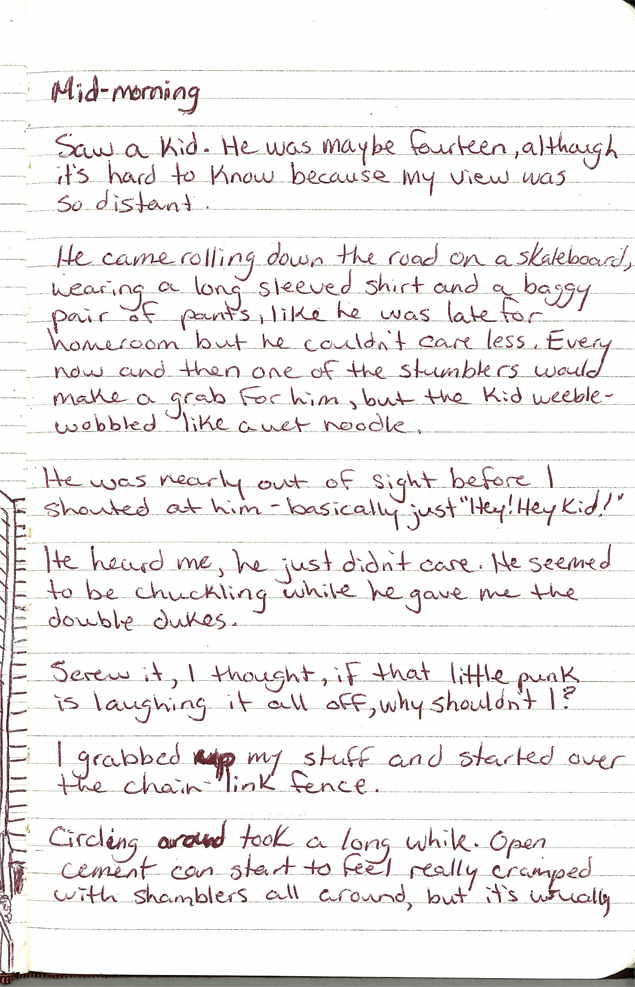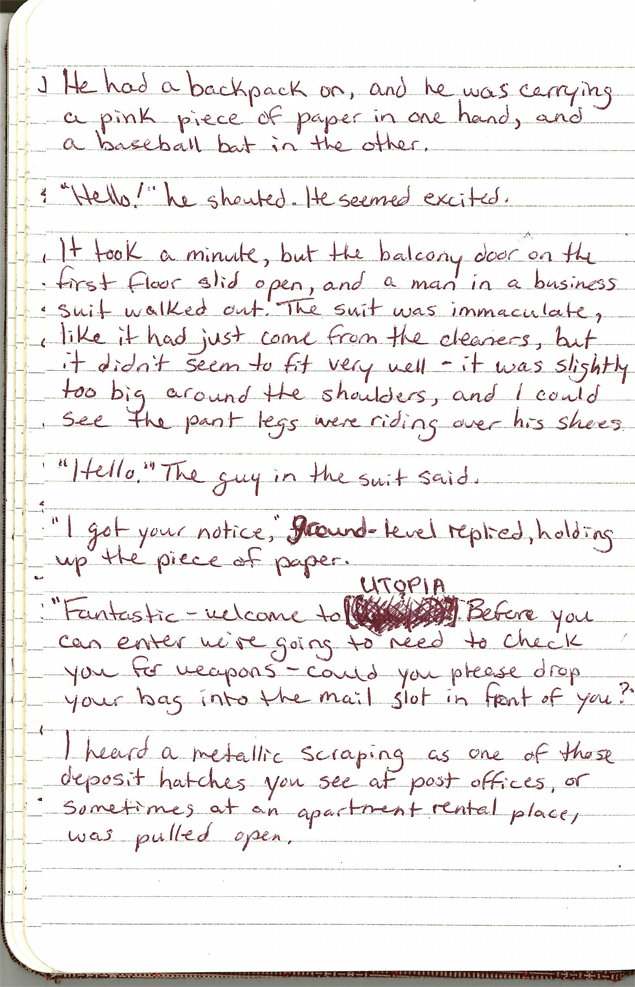 Welcome to Flash Pulp, Episode Sixty-Five.
Welcome to Flash Pulp, Episode Sixty-Five.
Tonight, we present The Weebinax: A Mother Gran Story, Part 1 of 1
[audio:http://traffic.libsyn.com/skinner/FlashPulp065.mp3]
Download MP3
(RSS / iTunes)
This week’s episodes are brought to you by the Flash Pulp page on Facebook.
It’s sort of like Eat Pray Love, but with more Flash Pulp news, and less Eating or Praying.
To join, click here.
Flash Pulp is an experiment in broadcasting fresh pulp stories in the modern age – three to ten minutes of fiction brought to you Monday, Wednesday and Friday evenings.
Tonight we pre-empt our scheduled Thomas Blackhall story to instead present a short fairy tale, as told by Mother Gran.
This Friday’s episode brings us the return of Joe Monk, and Blackhall will appear next week in a three-part serial entitled “Koyle’s Ferry”.
Flash Pulp 065 – The Weebinax: A Mother Gran Story, Part 1 of 1
Written by J.R.D. Skinner
Art and Narration by Opopanax
and Audio produced by Jessica May
One crisp evening, as the fallen leaves smothered the last of the summer grasses, Mother Gran gathered her children’s children, and her children’s children’s children, about the warmth of the cast iron stove.
As the eldest of the spectators shushed the youngest, Gran, with a sly smile, stated the yarn to be truth.
Her quiet words brought silence, and she began her fairytale.
This is the story she told.
* * *
At the edge of The Great Forest lived a farmer, his wife, and their child, a boy of five.
They lived a happy life together: each morning the lad would tell an imagined tale of a far off land, to bring a smile to his parents’ faces; each afternoon his mother would teach the mountainous farm hound a new trick to delight her family; and each evening the tired farmer would whistle a tune as he created a feast from the yield of his labours.
One autumn day, as the farmer prodded his bull on through the field, there came a figure from the tall oaks of the wildwood.
The farmer had a moment of concern, as many unpleasant things were known to live amongst the branches of The Great Forest, but as the shape moved from the shadows of the trees, he saw it to be the form of a running woman, a child in her arms.
At the sight of her anxious brow, he quickly invited the tired mother to his table, and returned his bull to its pen.
As the farmer whistled his tune and set about creating a feast, this time for two more, his wife talked at length with the visitor, and her daughter, a girl of five.
The guest spoke of a beast in the woods, the Weebinax, who had approached her many years previous, as she worked the fields of her parents’ farm. The creature had appeared in the guise of a man, whispering promises of a happy life amongst the oaks. She’d known little of the dangers beyond her parents’ land, and she soon found herself seduced by the sugared words of the Weebinax.
It was not long after she’d run away to the forest that she bore the beast, whom she still believed a man, a child.
Soon after, the thing no longer made effort to maintain its disguise: its barbed claws split its sheath of skin, its gnarled legs burst from fleshy foot. In a few short days it had cast off its covering entirely, leaving but an empty husk of skin amongst the fallen leaves.
Still, the woman, bound by a sense of duty impressed upon her by her parents, attempted to make do. She spent her days foraging for nourishing acorns, and thick mosses to set in her babe’s rough cradle – but often her labours were met by the clutching hand of the Weebinax, which was happier to fill its own belly while resting on its lush mat of green.
In the second year of her child’s life, with winter nigh and the results of whatever efforts she might make under the wrathful eye of the Weebinax self-evident, she announced her intention to depart.
Popping an acorn into its mouth, the beast waved away her statements and nestled deeper amongst its bedding.
Taking up her daughter, she left and, for three years, wandered the forest. It was not an easy life for mother, nor child, but what nourishment she might collect was her own, and the little girl at her side soon grew bright and strong.
She was a normal child in all aspects but one. What little blood of the Weebinax flowed through her, allowed the beast to locate the child no matter what the distance, as if she were a beacon upon the horizon.
For the most part, it had little interest in the woman and her daughter, but, twice or thrice a year, he would appear before them, making no effort in disguise, and demand that the woman return to his side, to which she always refused.
It was a recent such appearance that had set her running from the forest, and onto the homestead of the farmer and his wife.
At the woman’s recounting, the farmer’s wife quickly offered up a bed and a place by the fire. It was little time before all became as if one family.
Upon the mornings, as the boy-child finished his imagined tales of far-off lands, the girl-child would take up her hems and dance a step of her own devising, based upon the nature of the fabulous characters.
At noon, as the farmer’s wife set about teaching the hound new skills, the woman of the forest would sit at the fire and stitch, so that soon the family was well appointed with garments of her hand.
In the evenings, the farmer still whistled his tune, happy to hear the babble of a full house as he prepared his feast, now almost twice the size.
It was during one such evening meal that the combined family first heard the long scratches of the Weebinax upon their door.
The woman of the forest was first to answer, and the beast made his demands.
Returning to the table, her face was downcast.
“Realizing I will no longer travel with him, he wishes for his daughter to join him amongst the oaks,” she said.
Unwilling to part with the girl, whom she now also considered her own daughter, the farmer’s wife asked if it might accept the meal that was laid before them in her stead.
After a moment of discussion, the beast strode into the house, snatched up the chicken leg that was held, mid-bite, at the boy’s mouth, and collected together the hot food, using the table cloth as a sack.
The family slept on their hunger, content that the Weebinax had been satisfied.
It was with no little concern then that, no more than a season later, the sound of scratching upon the door once again reached their ears as they supped.
This time, it was the farmer who answered. The Weebinax repeated the demand of his daughter, although he could no longer recall her name, and on this occasion he refused the offering of their meal.
With fear for his family wracking his heart, the farmer told his wife, and the woman, of the situation.
“Offer him up our wardrobe,” his wife suggested.
Returning to the door, the farmer did.
Again the Weebinax accepted the offering in stead, striding into the house to empty every trunk and dresser, including those of the children. What it could not make use of, it ran its claws through.
After it had departed, the family warmed themselves with the rags that remained, content that they had once again satisfied the beast and retained the girl.
Life turned another season: the farmer brought home fresh food of the earth; the woman of the forest stitched new clothing; the children devised greater entertainments; and the farmer’s wife taught the lumbering farm dog new skills.
It was spring when the now familiar scratching began again upon the door.
This time it was the farmer’s wife who stood to answer the summons, the eyes of her family heavy at her back.
With a rotting scowl, the Weebinax once again demanded the girl, all the while peeking about the edges of the doorway, in hopes of catching sight of some item he would be pleased to take in exchange.
The wife answered not, but instead whistled low and long.
The hound had been well taught at her hand: the Weebinax’s yowling, as the canine set about chasing him again into the forest, was the last they would hear of the monster of the woods.
Flash Pulp is presented by http://skinner.fm. The audio and text formats of Flash Pulp are released under the Canadian Creative Commons Attribution-Noncommercial 2.5 License.
![]() Tonight, we present Ruby Departed: Neighbours, Part 2 of 3
Tonight, we present Ruby Departed: Neighbours, Part 2 of 3













 The first shot was Melnor’s, and well placed. Blackhall clearly saw the spreading crimson upon the tall man’s chest, and Thomas was sure it was the aging stranger’s turn to topple. After a moment, however, Ludwig seemed to collect himself, despite the neat hole in his waistcoat.
The first shot was Melnor’s, and well placed. Blackhall clearly saw the spreading crimson upon the tall man’s chest, and Thomas was sure it was the aging stranger’s turn to topple. After a moment, however, Ludwig seemed to collect himself, despite the neat hole in his waistcoat. Mulligan stepped into the reception hall, a slurpee in his hand.
Mulligan stepped into the reception hall, a slurpee in his hand.